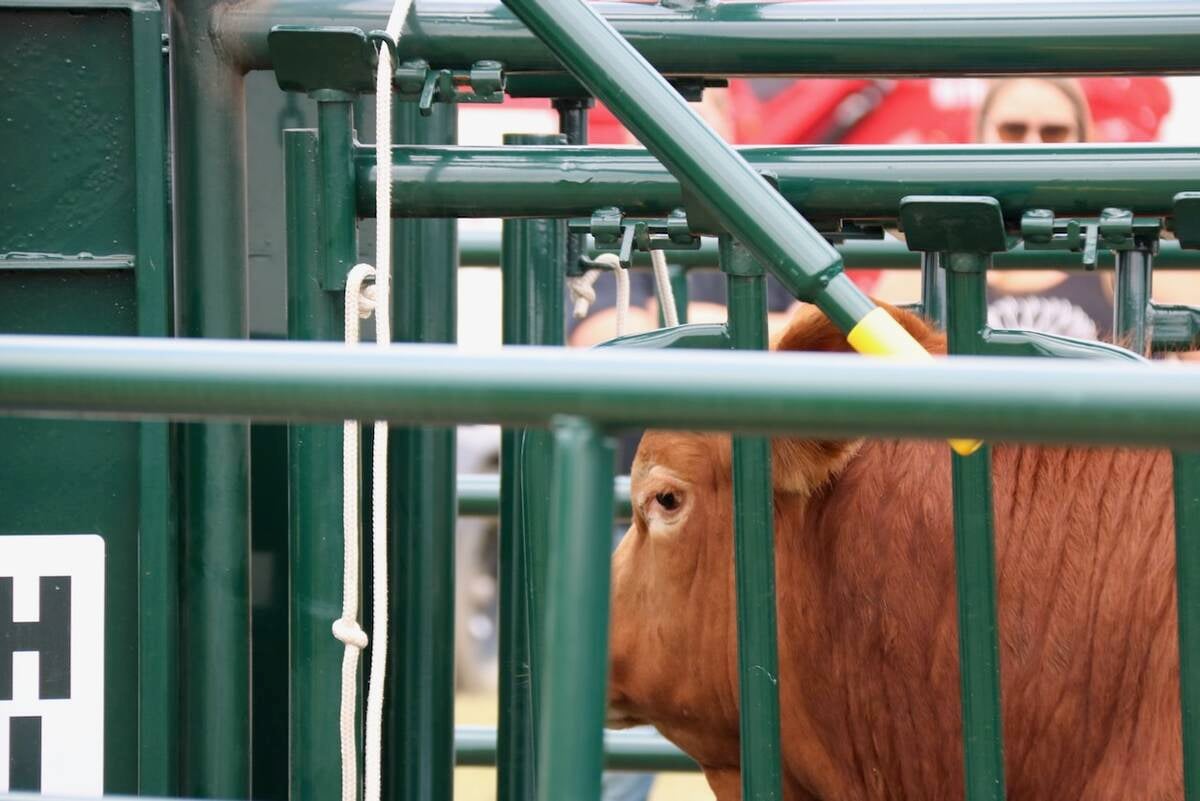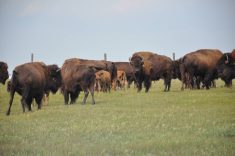For decades, a handshake has been enough to seal a deal among cattle
producers.
That level of trust seldom exists today.
Some cattle producers desperate for pasture entered deals last year
that collapsed by the end of the grazing season, said Ishbel Arnold,
who farms with her husband Calvin 50 kilometres north of Spiritwood,
Sask.
“Farmers seem to be such a trusting bunch. They set themselves up for
crooks. There’s no handshake or word of honour. It has to be written on
Read Also

Good handling equipment a must on cattle operations
It’s important for the safety of producers and everyone else dealing with their stock that handling equipment is functional and safe.
a piece of paper.”
The Arnolds learned those lessons the hard way last summer when they
offered grazing to drought-stricken Albertans.
They sublet their pasture, were paid in advance and Alberta cattle soon
moved in.
By fall, dealings with one client went sour.
Monthly payments were slow to arrive and when the cattle were sent home
in the fall, the customer stopped payment on his cheque, complaining
the cows were too thin.
The Arnolds lost $1,865, but said it isn’t worth the legal costs to go
to court.
“We were slack, but that is something you learn,” Arnold said.
This year they want post-dated cheques. They learned of one neighbour
in a rental agreement who held cattle in his corrals until the client’s
cheque cleared.
Last year, the Arnolds took pictures of cows before they were loaded
for the trip home. This year, they want before and after shots to
document the cows’ condition.
They also want references and are willing to provide their own.
Contracts will be required, although they found little guidance last
year on writing agreements or checking references.
Dean Lien, Alberta’s farmer’s advocate, said contracts are a good idea.
“People should have a written contract on these things, spelling out
what should happen on both sides.”
The contract should be signed by both parties and signed by a witness.
If problems arise over missing livestock or animals that cannot be
accounted for, producers can call the provincial brand inspector.
“Due diligence is what it is all about,” Lien said.
Ken Weir, manager of Livestock Inspection Services, which oversees
Alberta’s brand inspection, said producers looking for grazing land
should get to know the person offering the pasture and learn about the
property and the facilities.
Inadequate fencing may allow cattle to wander onto someone else’s
property. They may be lost permanently and the owner could be liable if
the animals damage someone else’s property.
In many cases, streams and rivers act as natural boundaries, but
drought has reduced some to a trickle or dried them up completely,
making it easy for livestock to cross onto someone else’s property.
“This was a huge problem this past year and animals wandered,” Weir
said.
Also, producers should know the condition of the property and whether
there is enough grass and water before shipping the cattle.
Producers should also ask for references and talk to banks, local
insurance companies or brand inspectors. They are legally restricted in
what they may divulge, but may provide good information.
“No one has trouble in recommending a good operator,” Weir said.
To ensure payment, ask for a certified cheque, bank draft or wire
payment to your account.
If sending cattle to graze in Manitoba, remember there is no brand
inspection service, so some risk is present in balancing inventory
numbers. Manitoba requires livestock manifests for moving animals, but
it does not mean ownership.
Under Alberta law, all cattle leaving and entering the province must be
brand inspected. If animals do not return, the brand inspector can
start a search.
Moving cattle across provincial borders presents unique issues, said
Saskatoon lawyer Don Purich.
When sending cattle from Alberta to another province, the laws of the
receiving province apply. If there is a dispute, the owner may have to
travel there to resolve the matter.
No standard contracts are available for grazing agreements, which
differ from leases.
In a lease agreement, the tenant takes all responsibilities for the
property, including losses, damages and use of the land.
However, there may be restrictions on the number of cattle that may
graze the land.
In a grazing agreement, each party has to agree on each other’s
responsibilities.
An agreement can set out grazing fees, supervision of livestock, water
supplies, protection against theft, provision of bulls, length of stay
and whether cattle are to be mixed with other herds.
Purich suggested contacting the Prairie Farm Rehabilitation
Administration or local community pastures for advice on service
agreements used in public grazing areas.















